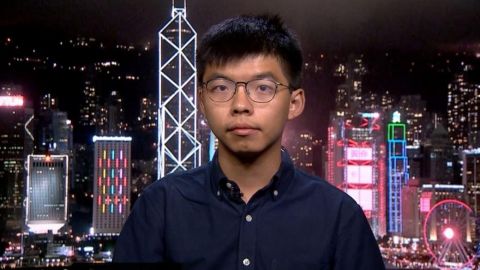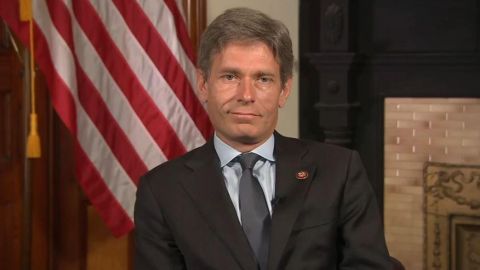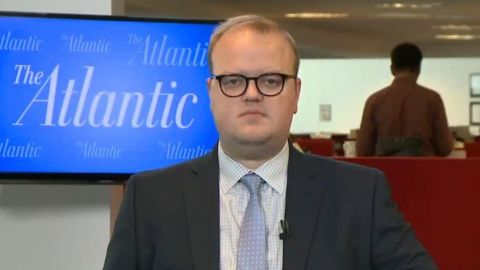Read Transcript EXPAND
CHRISTIANE AMANPOUR: Do you seriously believe that this is a government or a party that all these years later could even contemplate anything like a military intervention?
REP. TOM MALINOWSKI (D-NJ): Yes. Of course, they would contemplate it. They place their — the survival of their regime ahead of everything else, the interest of their people, the interest of their economy. But we have to make sure that they understand that the costs of that kind of action would be very, very high. Obviously, it would be a catastrophe for the economy of Hong Kong, which is intertwined with the economy of China. We would certainly have to look at other consequences that we impose in our policies and I would very much expect that Republicans and Democrats in the U.S. Congress would come together to ensure those in the Chinese Communist Party responsible for that kind of crackdown are held accountable. There would be costs in terms of their long-term goal of bringing Taiwan closer to China. So, we have to emphasize that very, very clearly before the Chinese make a bad decision.
AMANPOUR: I mean, you can see this sort of rise of, I don’t know, nationalism. I mean, if the Chinese are making all of these, you know, noises towards Hong Kong, which just wants a bit of, you know, the right to elect their leaders. I mean, they’re not asking to be a breakaway province, they want to elect their leaders rather than have them appointed by Beijing. And you’ve said what the U.S. Congress could do to make your point clear. Likewise, in Kashmir, I mean, you have this clearly, you know, Hindu nationalism of the prime minister. He has revoked the autonomous status of Kashmir. And there’s, still, seven days later, a massive lockdown, all the sort of communication links are cut, nobody really knows what’s going in there. What is the U.S. position on Kashmir, given that, you know, India and Pakistan are your allies?
MALINOWSKI: Yes. It’s always disturbing when people are cut off from the outside world. You know, I tend to assume that the government doing that has something to hide, and I hope that’s not the case here. Obviously, India is a very close partner of the United States. India is a democracy that stands for something in this world. And I — and it’s very important that this Indian government stick to those principles. You know, look, there’s a larger battle of ideas under way in the world today. We see it in Hong Kong, we see it in the protests in Moscow that are happening as we speak. People all over the world are rebelling against this rise of xenophobic nationalistic authoritarianism. America needs to be on the right side of that battle because it’s a battle for the heart and soul of what we stand for, what we believe in.
About This Episode EXPAND
Christiane Amanpour speaks to Joshua Wong about growing tensions between Chinese officials and protesters in Hong Kong. Tom Malinowski joins the program to reflect on unrest in Hong Kong, Kashmir and Moscow. McKay Coppins discusses conspiracy theorists’ reactions to Jeffrey Epstein’s death. Casey Gerald sits down with Michel Martin to talk about his article, “The Black Art of Escape.”
LEARN MORE



